Part III-Related Childhood Events
1
'From Innocence To Awareness’
____________
Date in Re: September, 1938
Event: F
IRST day of public school
The only photograph I have of myself under twelve years of age is a trimmed “school picture” taken when I was eight years old. My teacher at this time (Ms. Sutton) gets the credit for doing my hair. She not only combed out the tangles, she put a ribbon in it. I did not own any hair ribbons.
The physical changes that occur between six and eight years of age are usually not drastic ones. My facial appearance on my first day at Peninsula School in September 1938 was probably very similar to what it is in the school photo at right.
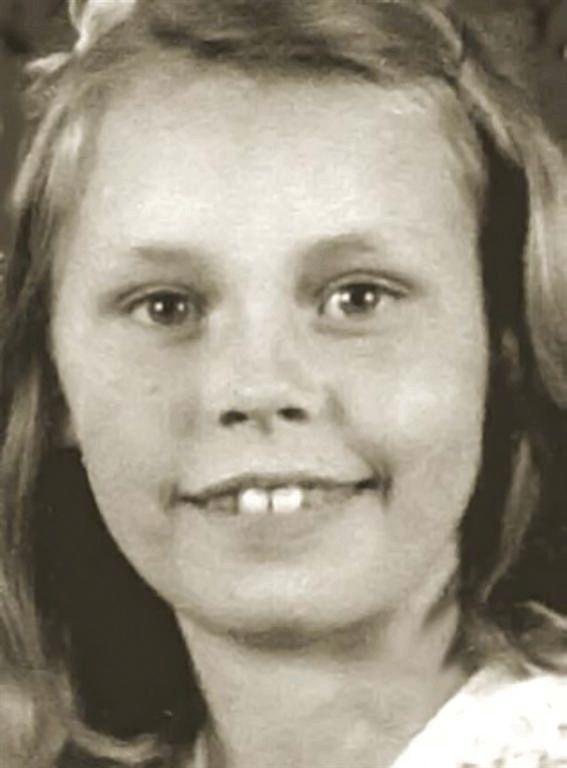 Fig. 108. Crop of school photo.
Fig. 108. Crop of school photo.
As I look at the inserted photo image of eight-year-old me, the thought comes to mind: How did others perceive me? Trying to recall what my childhood was like requires strong focusing upon what I saw, I heard, I felt, I thought, I wondered, et cetera. Up until I added this picture to the page, no thought had been given to how six-year-old me may have been perceived by other persons.
Neither had I felt any actual sympathy or pity for my childhood self. But looking upon the face of the little girl I was, a rush of tenderness flows over me for a l l young children. Oh, how v e r y innocent, unlearned, and dependent the young ones are upon the good will and knowledge of their parents and other guiding adults. What an awesome responsibility we parents have with regard to our one or more begotten-conceived children!
Readiness and Expectations
As I readied for my first day of school on the morning of September 1938, my expectations were as grand as might have been those of the most economically and culturally affluent child in the county. I was expecting only good things to happen when I arrived at school. And why not? As far as natural innate worth is concerned, each child is equally worthy?
All those times I had sat and watched my Grandma Annie carefully inscribe the “letters” on the hand-ruled paper she had prepared for writing to her two sons who lived in Norfolk, Virginia, it had seemed like such a special skill to me. Then, too, there were the writing materials I had received a few months prior to whet my interest. Although the pack of pencils and the pastel rainbow-colored tablet my mother’s friends had given me on my sixth birthday were probably all used up by this date, the excitement and expectations they had generated in me were not. I was motivated, ready to learn the skill that allows a person to write letters and read like I had observed Grandma Annie doing.
Most modern day six-year-olds have some idea of what “school” is like before they enter first grade. Not me. School was to be a brand-new experience for me. Kindergarten was not yet available, and neither had I attended any private preschool classes. TV had not yet come into existence. Hence, neither did I have Sesame Street and like children’s programs to provide some examples of what “school” was like. A few people had battery-operated radios, but no one in the household where I lived did. Thus, I was also devoid of that kind of preschool influence. Some children attended Sunday [religious] school classes, but I had never been inside a religious institution. Whatever religious “schooling” I received had come from family members. As for books, the only book I can recall having seen before entering first grade was the black-covered King James Bible 219 that lay atop a chest near the treadle sewing machine in the small parlor of my grandparents’ house.
Some children may have had preschool level books with pictures to look at, but there were none in the house where I resided. The only pictures or photographs I can recall ever having seen were the photo-portraits of two of my deceased relatives that hung on the parlor wall: Andrew Hugate, Daddy's twenty-one-year-old bachelor brother, and Annie Mae Jarvis, Daddy’s two-year-old niece.
219 with its Family Records’ pages for listing births, etc vital statistics.
Neither had I had any neighborhood children to play with before entering school. With the exception of the several adult friends of my mother who came to my birthday celebration in June of that year, the only persons I can recall having had any preschool contact with were family members. My paternal uncles and aunts, their spouses, and their children did come to visit at my paternal grandparents’ house sometimes. I had also been taken to visit some of them a few times. But not once had I ever spent the day with total strangers.
Yes, my first day of public school was very different from that of the average 1990s' child in the counties and the cities of Tidewater Virginia. For me, it was also my as debut into the collateral neighborhood society.
*
At last, the much anticipated day had arrived. I
am seated beside Grandpa Dick in the buggy. Bessie, the farm mare, is trotting along nicely, . . . and it is my hope that she will continue to do so. You never knew with that horse.
Sometimes she would take off and run like a “bat out of hell.”220When she would do that runaway thing, no amount of pulling on the reins would make her stop until she is ready to stop. Once she nellified 221 whilst I was astride her back.
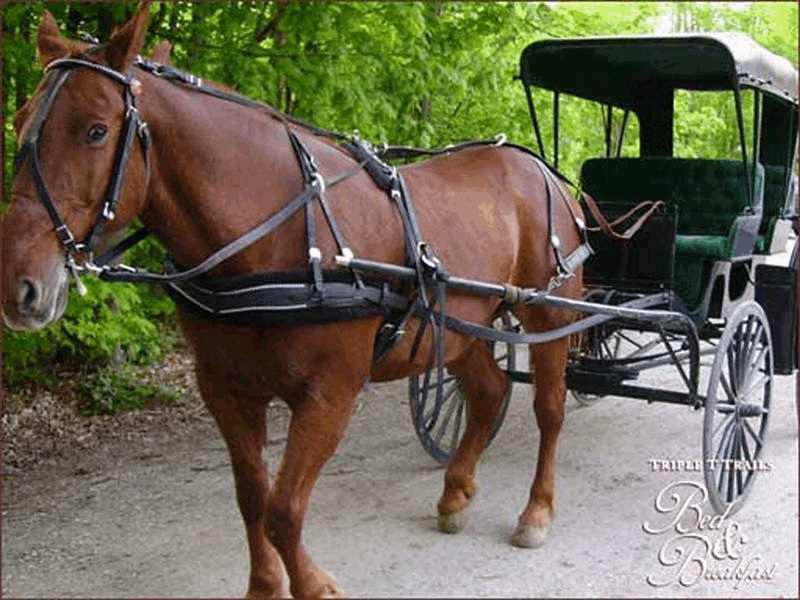 Fig. 109. Photo of similar horse & buggy courtesy of Megan at www.tripletbnb.com.
Fig. 109. Photo of similar horse & buggy courtesy of Megan at www.tripletbnb.com.
The gunny sack beneath me slipped and slid, but somehow I managed to hold onto her mane while she ran it out. This “runaway thing” had something to do with the horse eating too much green corn, or so I was told.
As we roll along the dirt road,222 Bessie's hooves and the revolving buggy wheels combine to stir up a lot of dust. The dust swirls up around and upon me. It is a hot sunny day, and my sensitive skin223 itches beneath the dark green long-sleeved dress of “homespun” weight fabric that Grandma Annie had made for me. The dress reaches near down to my ankles. My legs are covered in long black stockings. As I recall, Grandma Annie made those too. My new outfit is finished off with a pair of ugly brown leather high-top shoes Daddy bought for me to wear to school. [My feet had been “bare” all summer long.] The shoes looked very much like the modern bootie or hiking shoe, but they surely did not feel like them. Those brogans were hard and stiff.
220 I shall insert colloquial idioms where either I or the person I am writing about would probably have uttered them.
221 That’s what the in-house adults called the condition.
222 Route 619, now hard-surfaced and named Cakes Creek Lane.
Despite all the discomforts of the stiff shoes, itching skin, and dust in my face, I thought myself one lucky girl. What could be nicer? Here I was all dressed up and having a buggy ride with my Grandpa Dick, . . . and at last g o i n g to school.
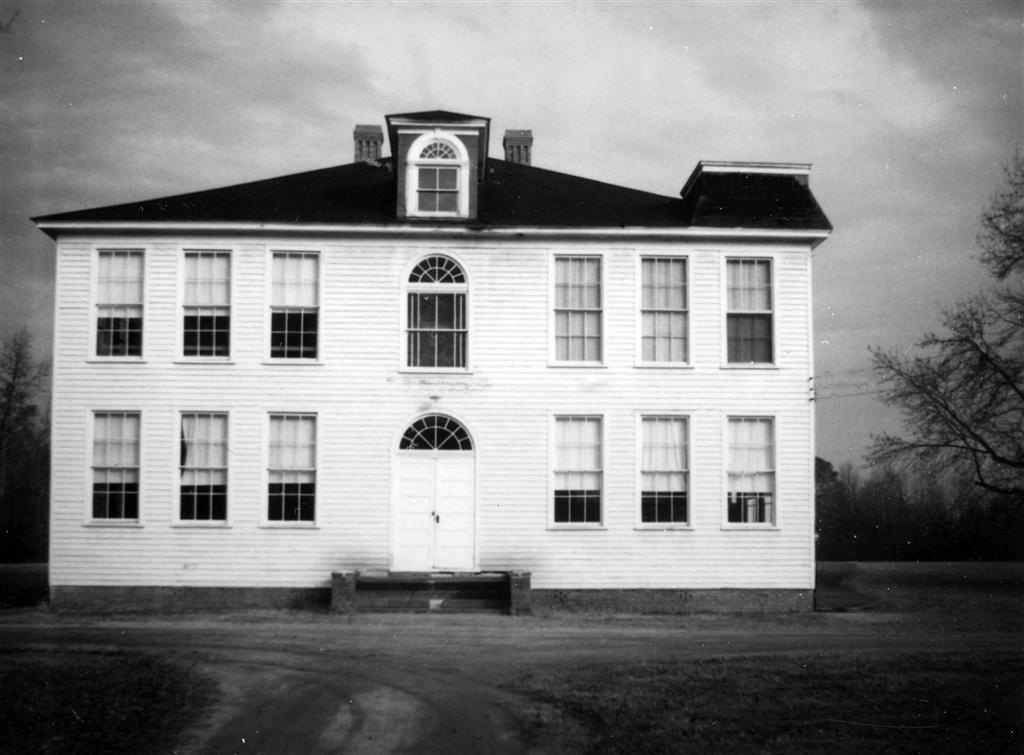 Fig. 110. Grey tone copy of Polaroid color photo of closed Peninsula School building taken by me in 1972.
Fig. 110. Grey tone copy of Polaroid color photo of closed Peninsula School building taken by me in 1972.
. . .
We finally complete our journey down the dirt lane to route 617 (North River Road) and on “through the woods” (Turnpike Road) to where route 619 intersects with route 660 (now named Mobjack Road). Less than one-half mile south of that junction is located the building that once served as Peninsula School.
Upon entering the curved pathway leading in and out of the school yard, Grandpa drives the buggy on over to the pump stand near the pine tree about forty feet to the right side (viewed from the highway) of the school building. Bringing the mare to a stop with a pull of the reins and a “Whoa," Grandpa Dick gets down and loosely ties the mare’s reins to something so she would not wander off. Then he pumps some of the well water for the horse, himself, and me. The school had no indoor water fountain. A pail and dipper were provided for us at this outdoor manual water pump station.
223 I was born with a skin disorder called Ichthyosis.
After the three of us were watered, Grandpa Dick takes me by the hand and leads me over to the front entrance of the school building. Ascending the wide front steps that led to the front double doors, we proceed straight ahead down the short hall to the classroom for the first, second, and third grade students at the right rear corner of the building. Walking me on over to the teacher’s desk, Grandpa says: “This is my granddaughter Lizbeth.224 Make her behave herself.” He then turns to me and says, “I will be back to get you after school.”
That was good enough for me. You could rely upon Grandpa Dick to keep his word. At least, I have no remembrance of him ever having lied to me.
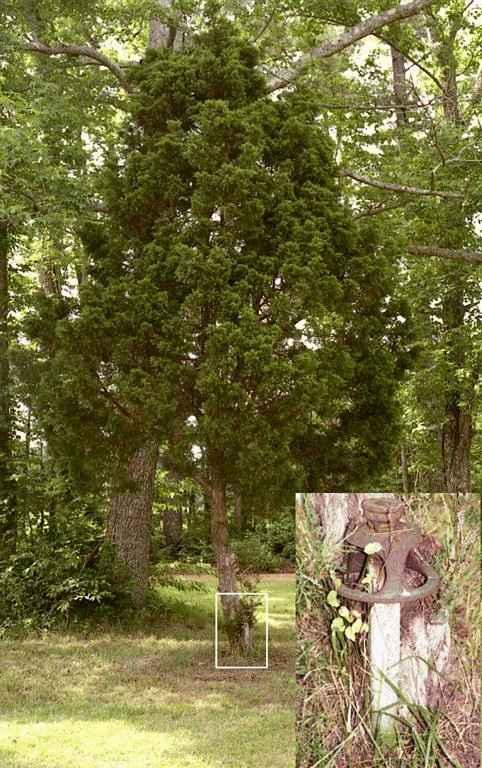 Fig. 111. Photo of tree with pump stand insert taken by me.
Fig. 111. Photo of tree with pump stand insert taken by me.
. . .
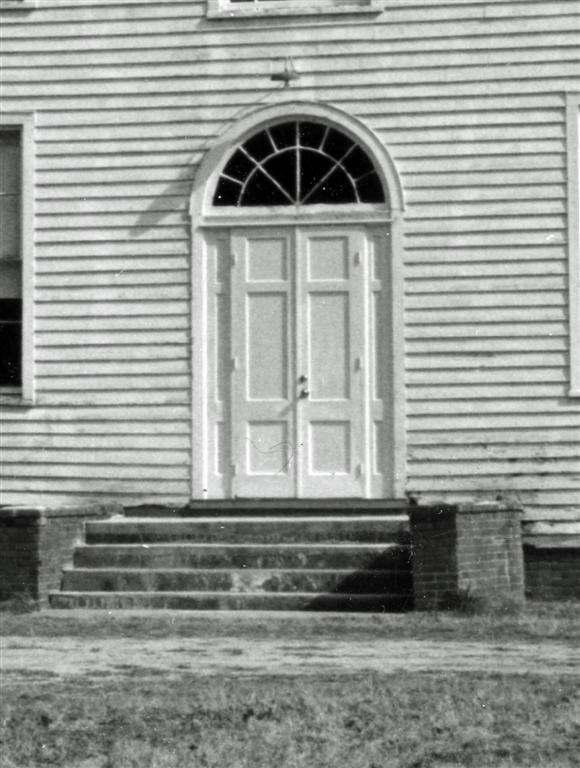 Fig. 111.1. Crop from a 1989 photo of the school taken by me.
Fig. 111.1. Crop from a 1989 photo of the school taken by me.
The first day of school is over. All the other children have gone home. But not me. I am seated on one of the long concrete front steps of the school. A short distance away at my left (facing the highway), the teacher is holding an impromptu conference with my grandfather. Considering what I go on to recall of this day’s happenings, she was upset over more than what Grandpa Dick had told me about “heaven on earth.” However, all I remember of their conversation is Ms. Bessie admonishing my grandfather about what he had taught me, . . .how he looked, . . .and what he said in response to her remarks:
224 Most of my nee family members called me “Lizbeth." Some still do.
Ms. Bessie
You should not put such notions in her head, get her hopes up. You know how things are at home. [ By ‘things’ she meant in regard to his youngest son and the son’s wife (my parents)].
Grandpa Dick - Standing there in his worn bibbed overalls with straw hat clutched in his gnarled and aging fingers , and feet squirming a little in the dust of the trodden curved dirt driveway in front of the school, this gentle and kindhearted illiterate old man tells his much-admired neighbor:
I know you are educated and all that, Miss Bessie, but there are some things even you don’t know.
Without further comment, my grandfather lifts me onto the buggy seat, and off we go. I have no recollection of our ride back to the farmhouse.
______________
Epilogue
So what notions were Ms. Bessie referring to? I cannot be sure about everything she was alluding to by “such notions," but the main one was the following thing about heaven that Grandpa Dick had told me sometime before I started school:
“There is a heaven on earth; and if you are a good girl, someday you will find it.”
225After allowing myself to remember this formerly repressed memory of the embarrassing (to me at the time) after-school conference between the teacher and my grandfather, I went on to recall the fore-cited statement about heaven, . . . and also other things that had gotten me in trouble this first day at Peninsula School.
As for why I repeated Grandpa Dick’s saying, perhaps it was a Share n’ Tell event. All I remember is that I did share the verse, and that some of my classmates challenged the truth of it. “It is so true!”, I had bristled in response. “My grandpa told me so, and he never tells a lie.”226
Like I said, Grandpa Dick’s statement was not the only thing that my new school acquaintances found odd about me. Some of my classmates snickered at the way I was dressed. No wonder. My attire was likened to that of the character Laura of the TV series: Little House on the Prairie. The frontier style of clothing may have still been in vogue when Grandma Annie’s daughters’ Georgie and Clara started school in the very early 1900s, but the girls in my 1938 classroom wore knee-length cotton percale dresses with short sleeves and anklet socks. I was the only girl wearing a dark calf-length dress and long black knit stockings. 227
*
Albeit my grandfather's inspirational refers to a state-of-mind, there is some of the physical celestial heaven on earth. I mean__do not the rays of the solar-star we call "
sunshine" fall upon our earthly home all the days of our oxygen-dependent finite lives? Whether brightly or faintly (as on a cloudy day), that celestial energy source never stops emitting those heavenly light-giving rays we call "sunlight." But as it happened, it was my son James who first pointed out this fact to me. It came about as follows:
225 A little over thirty years later, I would begin to discover just how true Grandpa Dick's "notion" about heaven on earth was.
226 And as previously stated, I have no recollection of him ever having lied to me.
227 Not long after, my Uncle Julius's wife (Mary Gibson Hugate) saw to it that two short-sleeved cotton percale dresses were made for me. One was red, the other was blue. Both were of the “princess” style, and buttoned down the front. I also remember getting some regular anklet socks.
 Fig. 112. “General0153.jpg” courtesy of MF4.0.
Fig. 112. “General0153.jpg” courtesy of MF4.0.
James and I were seated together on a pew in the newly built sanctuary of Lynnhaven Colony United Church. It was a bright sunny morning, and the sun’s rays were spraying down through the skylight directly over the pulpit area. Nudging me and pointing upward toward the skylight, young James whispered: “It looks like a little bit of heaven shining through.”
At the time (early 1960s), I was a bit shocked at the (then) ten-year-old’s comment. Grandpa Dick's motivational line was a most fair one. Whereas the connotation I picked up along with Grandpa’s words implied that the “heaven on earth” he was speaking of was a good thing to seek after, I had no concept of what he was actually alluding to until a f t e r I underwent the transcendent interaction with the self-revealing spiritual presence on the morning of January 14,1969. But figuratively speaking, the as emancipated state of mind is truly beatific, or as some would say: "heavenly."
But as it happened, what I overheard my first grade teacher say about my kinfolk made a longlasting negative effect upon how I perceived both myself and my kindred. Hitherto, I had not thought of any member of the Hugate family as either inferior or superior. We just were. But now, neither my parents nor I was acceptable. Grandpa Dick’s ways and teachings were also tarnished. Too young to be able to reason for myself after a logical and fair-minded manner about my family members and Grandpa Dick's saying, I was measuring my worth and that of my immediate kindred according to the expressed opinion of “the teacher.” It would take me years to recognize that my first grade teacher was of no more natural prestige than was my illiterate paternal grandfather.
The ability to read and write one’s national language is a very important asset, but Grandpa Dick’s illiteracy did not make him a failure at living. In the most important ways, my paternal grandfather was a very successful human being.
Neither, I would add, did Ms. Bessie’s insensitive remarks to my grandfather concerning his son and daughter-in-law make her unfit to teach elementary school age children. It would have been better had she been more tactful, but she proved to be a good academic instructor.
It was, however, my comparatively uneducated paternal grandfather who provided me with my first remembered example of everyday courage. Indeed, the haughty attitude of some teachers, doctors, lawyers, etc. professionals can be very intimidating. Thankfully, Grandpa Dick did not let Ms. Bessie’s professional status and remarks about his son and daughter-in-law make a coward of him. I am so very proud of this man for standing up for himself, his beliefs or principles, and his granddaughter’s right to an equal opportunity for a fair pursuit of happiness. The socioeconomic status of a child’s parents is separate from the child’s innate natural rights.
The child who rode back home from Peninsula School of that day in September 1938 was of a far different psychological mind-set than the one who had left for school that morning. My innocence was gone. The near automatic pride and affection I had previously held for my nee family members were replaced with shame, shame for who I was: the daughter of Ernest Hugate and Marion Sadler Hugate. To feel embarrassed about one’s parents’ behavior is sometimes a due response, but to feel ashamed of who one is because of one's genetic kinship should not happen. One’s civil rights or natural importance is not a kinship, race, sex, or nationality issue.
˜
2
The Divine Presence, Source of Conscience ?
____________
Date in Re: School term of either 1938-1939 or 1939-1940
Place: Peninsula School
Event:
FIRST detection of the spiritual presence.
228Both the girls’ toilet and the boys’ toilet were located at the far left (viewed from road) edge of the Peninsula Elementary School yard.
Although class was in session, I had needed
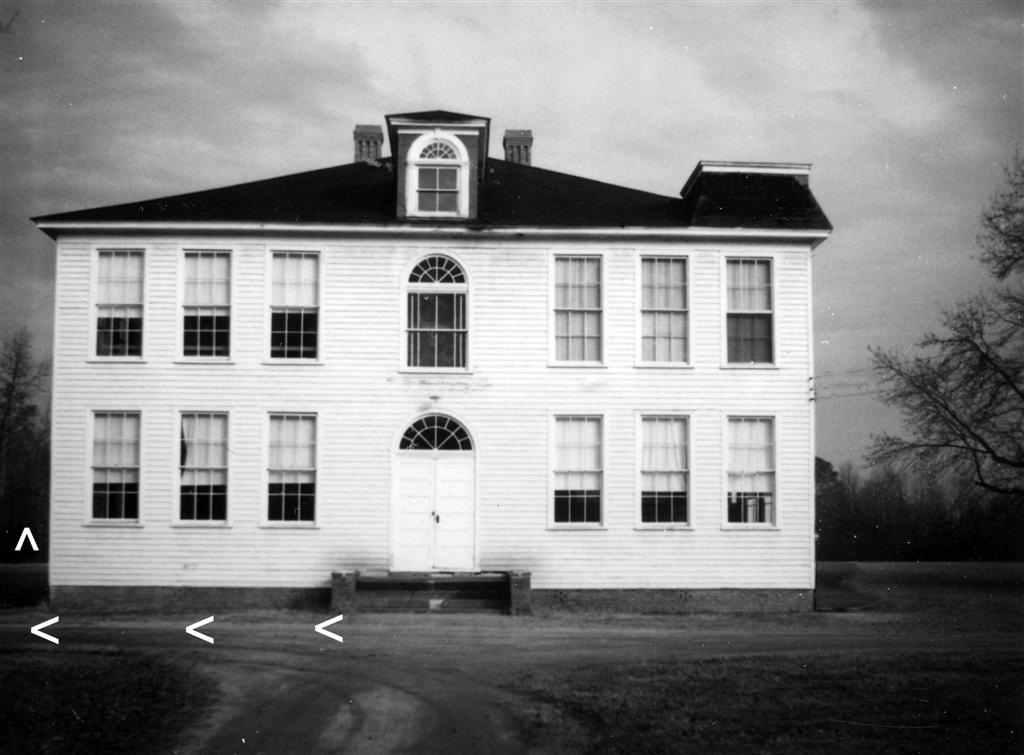 Fig. 113. The photo in fig. 110 with directional arrows added.
Fig. 113. The photo in fig. 110 with directional arrows added.
to go to the toilet. Coming out the school through the front entrance, I had taken the pathway indicated by the arrows added to the above photo, turned the corner, and was on the straightway path back to the outdoor “outhouse” bathroom setup when I suddenly experienced:
The sensation or impression of a steady invisible presence hovering a l o n g s i d e me.
As with my shadow on a sunny day, I could not run away from this attending nearby Presence. Where I went, it went. It was frightening. I was alone. There was not another human being in sight. All was quiet in the school yard. I was about seven years of age at the time. As you might suppose, I took off running the remainder of the distance to the toilet.
228 Also named holy spirit, and like the word conscience, probably stands for t h e s o u r c e of conscience.
Not once did I mention this happening to anyone else. Who would believe me? It was too scary. Look what kind of trouble I had gotten into with the teacher and my classmates after sharing Grandpa Dick’s spiritual life motivation statement: “There’s a heaven on earth; and if you are a good girl, some day you will find it.”
This is the only remembrance I have of sensing the invisible presence during my childhood. ___________
Epilogue
Since the spiritual presence within us was consistently called
conscience, I did not associate that word to the presence I experienced on this day in the late 1930s.
Holy Ghost and holy spirit were also frequently mentioned during my growing-up years , but I never did hear anyone say that either of those expressions were synonyms for conscience. One would think that even the Christian preachers would have known that the literal meaning of the Hebrew word vuvh is presence. But on second thought, how many of them questioned or tried to verify the King James authorized scholars' translation of the included Hebrew Scriptures?
Rene` Descartes proposed that there is a distinction between mind and body, but he did not have a lot to say about the distinctive parts and functions of the mind/psyche. To my knowledge, it has only been since Sigmund Freud’s time that much attention has been given to the nature and functions of the involuntary subconscious part of our mental self/psyche (s).
g Of all the words or titles I have heard given to the source of conscience within us, the word's "presence" or "spirit" are the most literally descriptive of the attending nearby presence experienced by me on this day in 1939, . . . and again in the more emphatic form of a hovered sensory vision on the morning of January 14, 1969.
I no longer judge or value my behavior by other persons' standards. Thus, if the presence which I experienced on this day in 1939--and in the vision on January 14, 1969--is not what causes me to feel accepted, though not necessarily perfectly correct, what is?
The word conscience is, I suspect, more descriptive of the consequence than the cause (i.e., vuvh / the divine presence, or holy spirit). Some have described this inner other self-like presence as representative of the divine presence of ohvkt, the Almighty Mental Power. True or not, the seemingly holy or incorruptible self-revealing presence within the mental self/psyche of all of human kind is theonly natural clue we have concerning the possible character of The Maker of the primary cosmic world. The only thing the other parts of the Supernally created cosmic world suggest is the existence of an Infinite or Absolute Creative Mental Cause.
˜
3
‘From Offense to Forgiveness’
____________
Date in Re: Late 1933 or early 1934
Place: Residence of my paternal grandparents Event: FIRST remembrance of anything
Our memories are the mental affidavits of our individual life experiences. As it happened, my earliest remembrance of anything was of the man shown in the photo at the right praying aloud on behalf of himself, his son, and me. In real time order, this is the second of a twopart event. But inasmuch as I had no recollection of the first part until
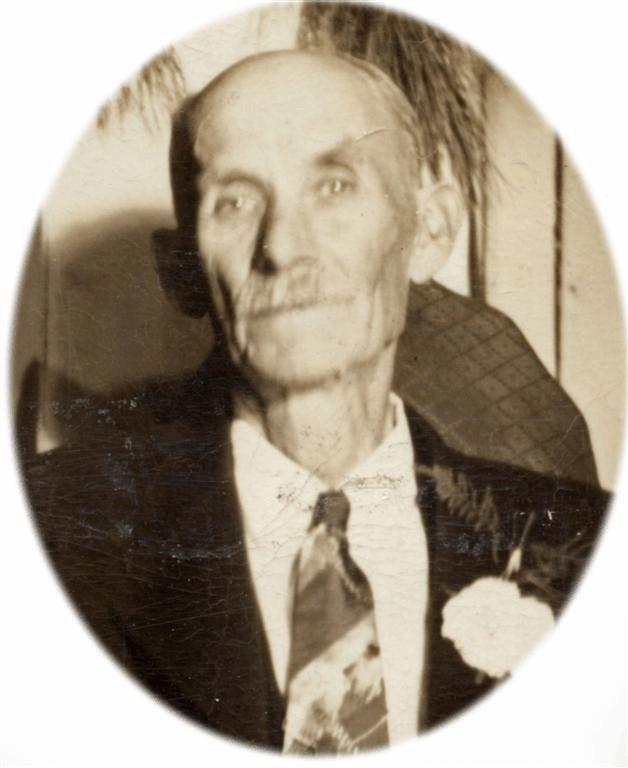 Fig. 114. Oval from a 1940 family photo of Dick Hugate.
Fig. 114. Oval from a 1940 family photo of Dick Hugate.
after allowing myself to remember the second part, I will recount of the two linked events in the order of remembrance rather than their chronological order:
Approximately eighteen-month-old me is lying in the middle of the full sized bed in the other229 of the two upstairs bedrooms. The fluffy, feather-filled mattress230 is puffed up around me like a billowy, cumulus cloud. My little eyes and ears are focused upon the man kneeling upon the floor near the footboard end of the bed I am lying upon. It is my paternal grandfather, Silas Rodney Hugate. 231
229 This other of the two upstairs bedrooms was used for a variety of special situations, including quartering a sick or injured grandchild for a night or two. Although my grandparents kept their clothing and other personal belongings in this room, most of the time they slept in a double-bed in the “sittin’ room” directly below. W ith one crying baby after another in the bedroom across the hall from their bedroom, the downstairs parlor was probably the only place in the house my grandparents could hope to get a “good night’s sleep” between June 30, 1932 and midsummer 1939 (the time my parents, four siblings and I moved to the four-room house Daddy had built for us).
230 The only soft mattress in the house.
With palms pressed together and fingertips touching the brow of his slightly bowed head, he is appealing for forgiveness, understanding, and compassion for himself and my father (the youngest of his six surviving children).
It was a most passionate plea, one unlike any I ever heard him or any other person utter in my presence again. Although apparently quite distraught and truly regretful, my grandfather’s demeanor was surprisingly neither mournful nor meek. Nor did he appear to fear or be in mind-boggling awe of the . . . he was addressing as “You.” But he was serious, oh so very serious.
In his candid appeal, this aged man noted how trying I was. “She never shuts her mouth,” he said. He then went on to admit that he was partly at fault for his son’s sometimes brutish ways. “I should have stepped in more often . . . should have been more firm with him [when he was growing up].”, he says of his own stubborn and difficult to discipline child. I My grandfather’s apology sounded profoundly sincere. Yet, he did not rest on the "I am truly sorry" part. Instead, he would offer some compensation. It might not seem like much, but I think it is a whole lot-of-much for a man in his seventies to propose to take on the job of like security guard for an eighteen-month-old child who he admitted was “enough to try anyone's patience.” What he pledged was: “I will look out for her as long as she is under my roof. After that, You will. . . .” I am not sure of the exact wording of the last part of that sentence, only that it was of the classic presumption that the Almighty Thou sometimes intervenes to assist those who help themselves.
Let me hasten to point out that my grandfather’s assumption about special help needs to be strictly qualified. If he meant help via the inner involuntary “intermediary” spiritual presence/ vuvh, I agree. But if he meant by direct Supernal intervention, I totally disagree.
By the time he had finished his talk-out, Grandpa Dick had calmed down some. He seemed both relieved and confident that: (1) his apology and appeal for understanding and assistance would be accepted, and (2) that what he proposed in the way of atonement for his past parental errors and of-the-moment or immediate wrongdoing was a reasonable “in good faith” offering.
I do not recall hearing any “Amen.” Perhaps I had fallen asleep by then.
231 (1861- 1950).
&
N ow for what happened before the praying event , . . . or why I was put to bed in Grandpa Dick and Grandma Annie’s private bedroom rather than my bed in my parents’ bedroom, . . . and why my grandfather was so upset.
As I remember it,
I am lying upon the bare floor in the room directly below the bedroom where the praying part later took place. The memory image of my body is not very clear, but I have the impression of myself dressed in a diaper. This is probably true, for not many children are fully pottytrained by 18 months of age. However clothed, my body is positioned near the footboard legs of my grandparents' parlor room double bed.
Daddy is standing close to the left side of me. Grandpa is standing at a near equal distance from the right side of me. Daddy’s back is toward the front of the farmhouse. Grandpa's back is to the rear of the dwelling. Neither of these men was of a tall physical statute. But from my position on the floor below, they tower above me like two skinny skyscrapers. Grandpa is speaking to Daddy. In an unwavering and near emotionless tone of voice, he says to my father: “You are my son and I love you, but if you ever . . . that child like that again, I shall kill you.” Although ever-inclined toward having the last word, Daddy says nothing. Like a quivering blade of steel, the eerie resonance of Grandpa Dick’s words hangs suspended in the otherwise silent room.
______________
Epilogue
One of the most surprising c











